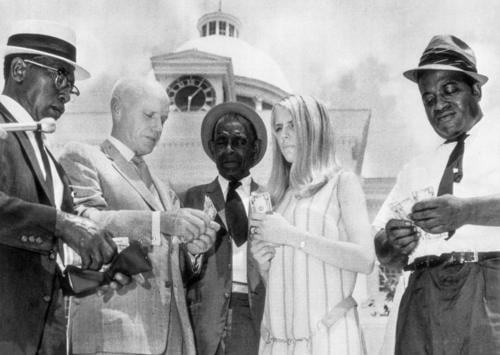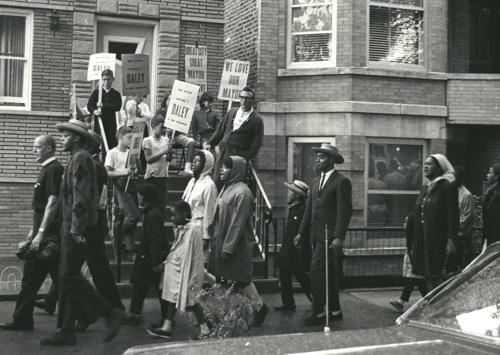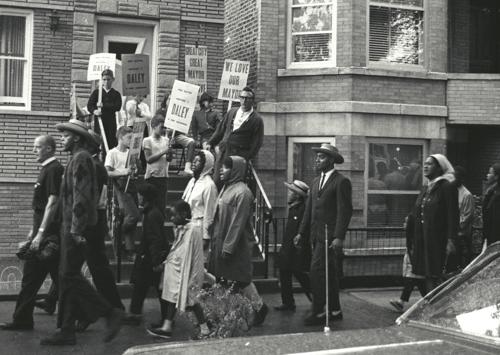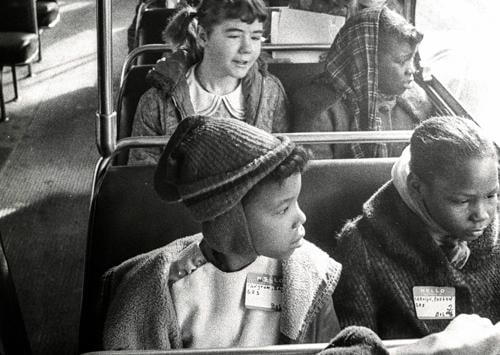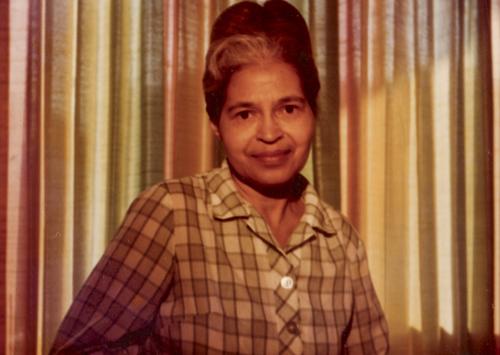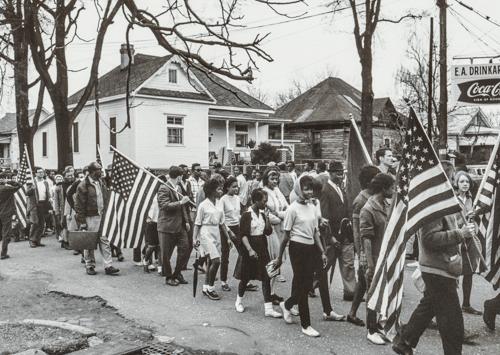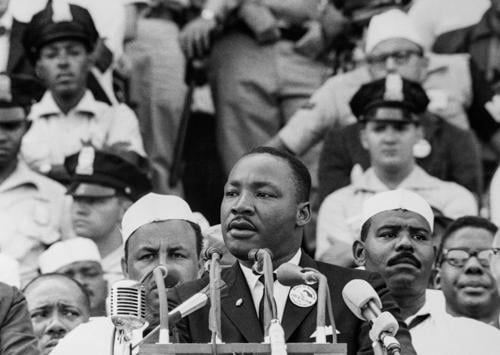Listen to New Voices on Studs Terkel our partnership with 826CHI-here! Read the Story
Showing 1 - 8 of 8 results
-
William Bradford Huie talks with Studs Terkel
Mar. 29, 1967 William Bradford Huie discusses his novel The Klansman. Includes recordings of interviews from Rev. Paschal Carlton, an unknown Alabama cab driver, and an unknown woman of Birmingham, Alabama. Includes songs "Be A Man, Join the Klan," and "Move Them Niggers North."
-
Studs Terkel discusses race relations and economic disparity with four Chicago area women ; part 2
Jan. 27, 1965 Studs discusses race relations and economic disparity with four Chicago area women in a program entitled "Each of us can act". This recording was the last of a 6-part series, "Rearing the Child of Good Will", broadcast under the auspices of the National Conference of Christians and Jews.
-
Studs Terkel discusses race relations and economic disparity with four Chicago area women ; part 1
Jan. 27, 1965 Studs discusses race relations and economic disparity with four Chicago area women in a program entitled "Each of us can act". This recording was the last of a 6-part series, "Rearing the Child of Good Will", broadcast under the auspices of the National Conference of Christians and Jews.
-
Studs Terkel discusses busing for school integration with psychologist Thomas J. Cottle
Oct. 11, 1976 Studs Terkel discusses the transportation of students for school integration with psychologist Thomas J. Cottle. The main topic of conversation is Cottle's book, "Busing" (1976, Boston, MA, Beacon Press). Terkel and Cottle discuss busing in several cities, focusing on Boston, MA, where Cottle did his research and writing. They each read passages from the book, and discuss the relationship between busing and racism in America.
-
Rosa Parks and Myles Horton discuss the Highlander Folk School, the Montgomery Bus Boycott, and the American Civil Rights Movement
Jun. 8, 1973 Rosa Parks and Myles Horton discuss the importance of the Highlander Folk School, the Montgomery Bus Boycott, and the American Civil Rights Movement. The story of these two prominent figures of the Civil Rights Movement have intervened in their fight for social equality. Includes a fragment of an interview with E. D. Nixon well known civil rights leader.
-
Interview with Rev. Paschal Carlton Part 2
1967 Residents of Selma, Alabama discuss Selma to Montgomery March (part 2 of 2). Includes interviews of Bishop Anderson, Father [Denston] and Mr. Carlton.
-
Dr. Martin Luther King Jr. discusses civil rights in regards to his "I Have a Dream" speech
Oct. 22, 1964 Studs Terkel interviews Dr. Martin Luther King Jr. at the home of gospel singer Mahalia Jackson. They discuss King's "I Have a Dream" speech that he made in 1963, at the foot of the Lincoln Memorial. At the end of the program there are various gospel music selections featuring Jackson and others.
-
Arnold Rampersad reads from and discusses his book "Jackie Robinson"
Oct. 22, 1997 According to Arnold Rampersad’s book, “Jackie Robinson: A Biography”, Jackie Robinson’s claim to fame was not soley being the first African American baseball player to play in the MLB, but Robinson was also a symbol of race relations and civil justice. Rampersad’s book also includes various stories of Robinson’s background & family life. Robinson was court martialed for not sitting in the back of a bus. Sadly, Robinson’s son, Jackie, Jr. could never handle being the son of Jackie Robinson and he turned to drugs.


